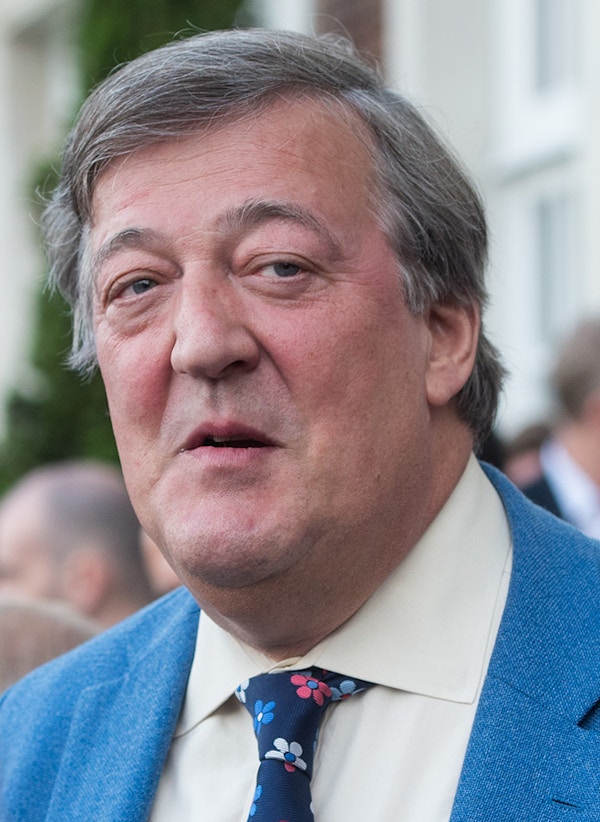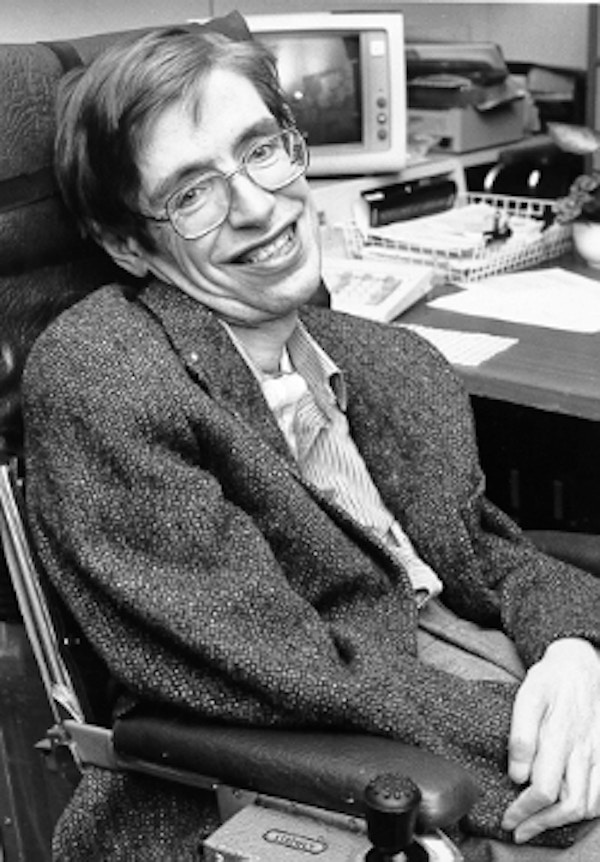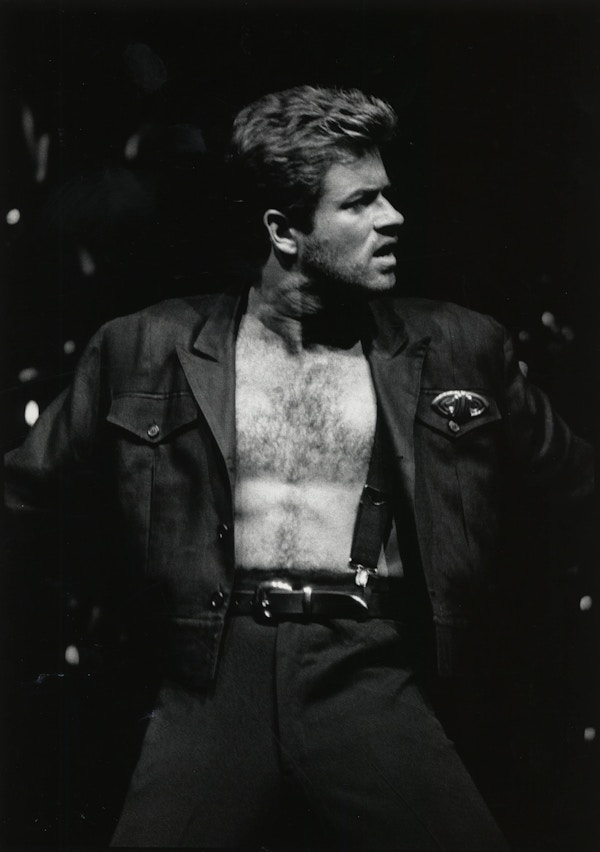Desert Island Discs still airs first on the trusty, stalwart BBC Radio 4, after which you can download some 2,000 episodes as podcasts. We have loved delving into the archives to bring you our very favourites. Not, we might add, that the exercise wasn’t every bit as painful as it must be for the castaways choosing their eight discs, so rich and varied are the interviewees.
Honourable mentions must go to Yoko Ono, who described movingly the day John Lennon was shot; the ever hilarious Jilly Cooper; Judi Dench, who found the whole process ‘a nightmare’; and the wonderful Anna Del Conte – plus, literally hundreds of others. The good news? We now have the time to explore them, all while pottering happily about our kitchens.
Do share with us your favourites, we’d love to hear them.
Maya Angelou, 1987
Listen here.
Image: Clinton Library / Public domain
‘My mission in life is not merely to survive, but to thrive; and to do so with some passion, some compassion, some humour, and some style.’ That Maya Angelou, the American poet, memoirist, singer and civil rights activist achieved that mission with some dash and bravery is incontestable; her execution of that passionate life little short of remarkable. Her Desert Island Discs interview in 1987, as told to Michael Parkinson, recounts the troubling and seminal events in that life.
Born Marguerite Annie Johnson in 1928 in St Louis, she and her brother were sent to live with their religious paternal grandmother in the segregated town of Stamps, Arkansas, after their parents’ separation. But it was when, aged seven, they went back for a brief spell to live with their mother that Maya suffered the trauma that would silence her: she was raped by her mother’s boyfriend. She confided the abuse to her brother who told the rest of the family; her abuser was jailed for a single day. Four days after his release, he was murdered, most likely by Angelou’s uncles.
The horror of what had happened to her, followed by the terrifying power of having spoken the truth, rendered Angelou mute for five years. As she told Parkinson, ‘Somehow, with my seven-and-a-half year old logic, I decided that my voice had killed him, that because I told who did it, that my voice was the culprit. So I decided that I better not talk because anybody whose name I called, who heard me, might die.’ What rescued her from that five-year silence? ‘Poetry.’
The full story – which recounts how she emerged and found her voice, how still she rose – is exceptionally affecting. Plus we could listen to the sound of her voice all day. Her music choices? Exemplary.
Alfred Wainwright, 1988
Listen here.In 1988, an 81-year-old Alfred Wainwright sat in the Desert Island Discs studio and described to Sue Lawley the very last walk he ever took in his beloved Lakeland Fells. It remains one of the most poignant accounts we’ve heard.
Having trained as an accountant, his love of the Lake District became an obsession for the Lancashire—born Wainwright, and his zeal to write then-trailblazing illustrated guide books – which number over 40 – dominated his life to the detriment of all else, even of his marriage. His wife simply one day left the house, taking the dog, and he never saw her again – not that he blamed her, not after she’d ‘stuck it out for 30 years’.
And yet one day, the mountains that had so gripped his heart and soul, were no longer attainable. He describes: ‘Unfortunately my eyes have gone in the last two or three years. I always counsel people to watch where they’re putting their feet on these rough mountains. The last time that I did a Fell walk, it was a pouring wind, a terrible wind, and I was stumbling and slipping all over the place. And it wasn’t because my glasses were misted. It was because I couldn’t see where I was putting my feet. And that’s the last time I did a Fell walk. And the mountains wept tears for me that day.’
Tom Hanks, 2016
Listen here.
Image: Dick Thomas Johnson from Tokyo, Japan/ CC BY
Is there a person on the planet that doesn’t love Tom Hanks? His role call of two Oscars, eight Emmys, one BAFTA and four Golden Globes has, by dint of some miracle, not produced a raging egomaniac but a funny, relaxed, generous-spirited and steadfast man, profoundly devoted to his wife Rita Wilson (‘I’m not a cheater. I met her and I thought I’m not going to be lonely any more’) – and simply the kind of guy we dream of having over for Sunday lunch.
He talks fascinatingly of his Oscar-winning role in Forrest Gump, elucidating that at the time of making the movie, he didn’t have the overarching comprehension of what he now sees clearly that the director, Robert Zemeckis, intended the movie to say. ‘I never knew it but Bob was making a movie about Vietnam America. He was making a movie about how wondrous it was the despite one of the most tumultuous decades of our lives, and one of the great nadirs of our nation’s history, how that scarred us in ways that I didn’t quite understand. The fact that Forrest and Lieutenant Dan survived and Bubba did not, that was very, very palpable for me. Towards the end of the movie, Forrest is alive and Lieutenant Dan is alive but all these other people have gone, and the idea that life goes on and therefore it is forever hopeful… he landed, I think, in an unspoken dilemma that a lot of people are going through.’
He talks of being a survivor of his childhood; his parents divorced when he was four, he was separated from his youngest brother, and he’d lived in ten houses by the age of ten. He discusses, movingly, his loneliness, and even sheds a tear in a profoundly touching moment. Through it all though, he embraced change and emerged with an inspiringly positive perspective on what it is to be alive. Glorious.
Jacqueline Du Pré, 1977
Listen here.
Image: Jara2020 / CC BY-SA
Roy Plomley talked to Jacqueline Du Pré ten years before she died, but after the virtuoso cellist had, devastatingly, been diagnosed with multiple sclerosis, thus halting her career. Regarded as one of the greatest cellists of all time, she made her debut at Wigmore Hall at just 16, and two years later she performed the electrifying and legendary rendition of Elgar’s Cello Concerto at The Proms (a performance she returned to repeat for the ensuing three years). She recalls, ‘I remember giving a concert when I was six, but I cannot remember where except that it was in London in a hall that had a lot of paintings which had to be covered because they were of nude females and this was not considered proper for a six-year-old to see. I was fascinated.’
She describes her extraordinary meeting with the man who would become her husband – Daniel Barenboim – as they played Brahms E-Minor together at a party and ‘it was like we’d known each other all our lives, there was nothing to say.’
But the most moving part, of course, comes as she talks about her diagnosis in 1972. ‘It turned out in fact to be multiple sclerosis, which has rather taunting and elusive symptoms. It can suddenly present itself in a certain form and then take itself off leaving you free of the symptoms for a while. It does take a tremendous effort because one is, naturally very frightened by it. And I was very frightened by it. It took me a long time to come to any kind of grips with what had happened. But then I can say in a sense I am lucky because the cello repertoire is small, I had done most of what I loved, and I can look back on a full musical life.’ A humbling interview with an extraordinary genius.
Emmylou Harris, 2004
Listen here.
Image: C. Kuhl ( www.chriskuhl.com/music ) / CC BY-SA
The ever-brilliant, multi-Grammy winning Emmylou Harris was Sue Lawley’s guest in 2004, when she began by talking candidly about her sense of preclusion from country music on account of not having suffered enough (this despite her Marine Corps father being held hostage in the Korea when she was too young to fully grasp it, other than that he was in grave danger). She then explores how, as a single mum at the age of 23 in Washington DC, she feared that her life was over, that she’d had her shot and blown it.
And yet it was tangentially through her daughter that her life in music really began. Working in a club in DC, a group called the Flying Burrito Brothers happened to come in and see her. When they moved along to the next town, they hooked up with their former band mate, one Gram Parsons, who said he was looking for a girl to sing on a projects he was working on. The Burritos mentioned having seen Emmylou but didn’t know how to get in touch with her. It would have been a case of a simple missed connection had it not been for Emmylou’s babysitter. A big music fan, she’d gone backstage, overheard the conversation and put them in touch, in a tale of extraordinary serendipity.
Plus, the original transmission was the first time we ever heard Kate and Anna McGarrigle’s Talk to Me of Mendocino. ‘I’d never heard such dark and light,’ she tells Sue Lawley. It’s been a favourite of ours ever since.
David Attenborough
Listen to the 1979 episode.Listen to the 1998 episode.
Listen to the 2012 episode.

Image: John Cairns / CC BY 4.0
David Attenborough, along with The Queen, must be our greatest living national treasure. It stands to reason then that he is one of only two people (the other being the comedian Arthur Askey) to have been interviewed some four times on Desert Island Discs. Though the earliest recording is not available, we adore these three: the earlier one recorded with Roy Plomley in 1979, the later one in 1998 with Sue Lawley, and finally with Kirsty Young in 2012. He has, of course, some experience of choosing discs for remote trips: in 1979 he used to take 40 hours of cassette music. His first-hand wisdom? That what you really need when alone and far away is Handel’s The Lord Is My Light, which is about dancing with joy. In his later recording, he had upgraded his musical packing, taking away 99 CDs on his trips, although always, always including Cosi Fan Tutte. Here he chooses the Farewell Trio in the first act, because ‘it summarises saying goodbye and I’ve spent a lot of time doing that in my life.’
Stephen Fry, 1988 and 2015
Listen to the 1988 episode.Listen to the 2015 episode.

Image: US Embassy London / Public domain
Stephen Fry’s two appearances on Desert Island Discs – with Sue Lawley and later Kirsty Young – ensure that he is, surely, en route to full-blown national treasure status. We love, in his first appearance, his delineation of Oxford types – ‘warm, worldly, royalist’ – versus Cambridge folks – ‘ascetic, monkish, republican’, and his profession that he would totally loathe the solitude of a desert island. In his second appearance, he shares how he and his new husband Elliott Spencer were considering parenthood, and that his friend Prince Charles would likely not be best pleased (though he’s ‘not prissy’) at his revelation he took cocaine at Buckingham Palace. He talks about his facility for and love of language, saying that he’s terrified of being laughed at if ever he dances, that he can’t sing or paint – or ‘hardly do anything ‘– but use words. Happily then, he uses them better than just about anyone we can think of. We love his choice of The Archers as one of his discs – surely the ultimate in comfort tunes.
Stephen Hawking, 1992
Listen here.
Image: NASA / Public domain
In 1992 the greatest theoretical physicist since Einstein, a man defiant of his dire prognosis of life expectancy post being diagnosed with motor neurone disease, and the founder the Centre for Theoretical Cosmology at the University of Cambridge, talked to Sue Lawley. It is rare that so unequivocal a genius talks in public about their life outside of (as well as inside) their work, but here the author of the bestselling A Brief History of Time spoke openly about his need for love, warmth and affection, and about the moment he lost his voice.
In 1985 he was in Geneva when he caught pneumonia. ‘I was rushed to hospital, and it was suggested to my wife that it was not worth keeping on the life support machine. She was not having any of that.’ He was flown back to Cambridge, where his life was saved but his voice was lost. He talks of his despair that if he couldn’t get his voice back, it wouldn’t be worth carrying on, when out of the blue a California computer expert who had read about his plight, sent him a computerised voice he’d developed for his mother-in-law. His music choices are sublime, as is his luxury: Crème brûlée.
Simon Cowell, 2006
Listen here.
Image: Alison Martin of SimonCowellOnline.com / CC BY-SA 2.0
Simon Cowell’s irreverent chat with Sue Lawley in 2006 remains one of the recordings that makes us laugh the most. He talks of his loathing of cultural snobbery; how he feels like ordering beans on toast in fancy restaurants; and what a horrible child he was. As he describes, ‘I held up the school bus with a pea shooter’ and it was suggested politely that he leave more than one school. He describes his childhood in Elstree, going to parties with the likes of Bette Davis, and how much of an affect it had, fostering in him a lifelong yearning for the glitzy life. He chooses Bobby Darin, expresses cheerful self-knowledge and opts for a mirror as his luxury, because he would ‘miss me’.
Ben Helfgott, 2017
Listen here.Ben Helfgott, described to Kirsty Young was it was like to be one of only two Jewish survivors of the Holocaust to go on to compete in the Olympics. He talks of life in the Polish Ghetto, of the hardships, privations and unforgettable horrors of encampment, and how, eleven years later in 1956, he went on to represent Britain in Melbourne as a weightlifter. He describes how, when entering the stadium, he thought of his parents, and felt dual sadness and exhilaration.’Eleven years ago I was at the point of death, and here I was, not only alive and kicking, but I was representing my adopted country.’ Extremely powerful and moving.
George Michael, 2007
Listen here.
Image: University of Houston Digital Library / Public domain
Oh how we love George Michael. The self-knowledge of that undemonstrative philanthropist, as well as his supreme talent and his raw honesty make this very rare interview with Kirsty Young, one of our favourites ever. Love, loss, sexuality: he covers them all. But we especially love his lack of false modesty, as he says, ‘I finally realised that one of the reasons my life has been so extreme and in some ways self-destructive is that, it sounds arrogant, but I never had any feeling that my talent was going to let me down. I had a huge feeling that I had an advantage over a lot of people in the industry and a lot of people in my own life who I love and care about very much, obviously. In a strange way, I’ve spent much of the past fifteen to twenty years trying to derail my career, because it never seems to suffer. I suffer like crazy, but my career always seems to right itself like a plastic duck in a bath, and I think in some ways I resent that.’
Rather poignantly, he talks of wishing that he smoked less marijuana, but insists that drugs were not adversely affecting his life. He also holds the accolade for the first interviewee to choose an Amy Winehouse song.
By Nancy Alsop
April 2020
READ MORE
9 TV Shows You Need To Stream Now
8 Great Nature Podcasts
10 Podcasts To Make You Cleverer


